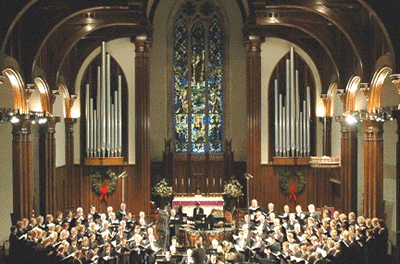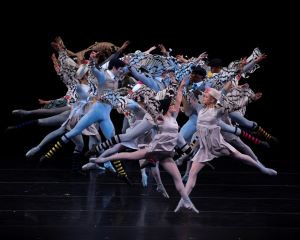Among its vibrant cultural attractions, Wilmington has a thriving jazz scene. The music department at UNC Wilmington has a roster of jazz faculty and students who regularly give excellent concerts, and the department periodically hosts fine guest artists. The thriving downtown scene offers any number of clubs which will feature quality jazz. The Cameron Museum of Art has been presenting excellent jazz artists monthly for some time. And for the past forty years, there has been the North Carolina Jazz Festival which brings superb jazz to Wilmington at its own substantial annual event.
The second installment of this year’s festival featured seven groups. Each was led by a different artist and had its own distinct character. There were about a dozen players all together, put into different combinations for the various sets. With each set lasting a half hour or more, the listener was treated to over four hours of jazz. Each performer is a superb artist; many of them have recorded extensively and perform in New York and internationally. The result of having them in combination was always fine, and sometimes simply magic.
The first group, a septet, was led by Ben Polcer on trumpet, in his first appearance at the festival. Polcer has been active in New Orleans for fifteen or so years, and the band played tunes in that style. One savored the skillful and rich polyphonic collective improvisation which is a particular genius of Dixieland. Overall the choice was made to have short solos, which gave each player a chance to be heard in each number. However, one rather missed fully developed solos until the last tune, “Pennies from Heaven.” Here Adrian Cunningham was featured on flute, beginning with just bass accompaniment. After the piano and percussion entered, the tune unfolded into a fine extended solo with a bigger shape. The tune and the set ended on an exuberant note.
An immediately different, suave sound was presented by the second band, a quintet led by trombonist Bruce Harris. The addition of Jonathan Russell on violin added to the change in character. As opposed to the exuberant tones of the first group, this one put a good deal of emphasis on soft sounds, for a different and wonderful effect. The word mellow might best describe the overall quality. “Dickies’ Dream” by Count Basie, the first tune, began with muted trumpet. The violin led into the piano solo with a fine diminuendo and after that the piano accompanied the bass solo with a beautiful soft. This relationship between those two instruments repeated a number of times over the course of the concert. The presence of space, breathing room between phrases, was very noticeable; yet there was florid, elaborate violin improvising as well. In Duke Ellington’s “Echoes of Harlem,” with its jaunty bass dotted rhythm, the gripped silence in the audience was almost palpable.
The following trio set was led by Champian Fulton on piano and vocals. This group was different in that it was heavily focused on its lead player, as opposed to the ensemble. Fulton’s playing often featured emphatic rhythms with strong stresses in an almost muscular style. But her range was wide. She commanded blistering fingerwork in her solos, full chords, and a mellow tone when she wanted it. There were a couple of fine fades. Her vocals were fine too; she had a full tone and a rich lower register. The North Carolina Jazz Festival seeks to bring younger artists to the stage as well as seasoned ones. Fulton has been named by Downbeat Magazine as a “Rising Jazz Star.” With good reason.
The first half ended with a quartet led by the tenor saxophonist Houston Person. One could laud his large discography and the leading names he has played with. But it would be simpler to just describe his exquisite music. Person played with the seemingly effortless command and physical economy of a complete master. He can express fleet music beautifully, but mostly he indulged his obvious preference for reflective character. He played with sheer beauty of tone. More than that, his saxophone took on the character of a singing voice. He played with such expression that one can imagine the instrument as a singer, putting forth words and melody which speak to one’s inner being. One shouldn’t neglect to mention that the rest of the quartet supported him beautifully, quietly underlining the melodic expression. Then too, there was a mellow piano solo with clean, wonderful fingerwork, and a propulsive, energy-filled bass solo in the quicker last tune. The intermission came with this listener looking forward to more.
After the pause, Russell led a septet on violin, beginning the set with an exciting unidentified tune. In the next tune, from The Music Man, he took a florid, yet also expressive solo. Here one became especially aware of the exceptional solo work around the ensemble. Over and over in the second half, the improvisations took on a shape, a trajectory, which moved flawlessly over their length, up to a high point, be it a scale design or dynamics, to a resolution which brought in the next soloist. This was jazz playing of the highest order. Not to mention a wonderful violin-trombone dialogue, and sensitive obbligato from the other instruments around the pianist’s solo in the bluesy “After You Gone.” Russell also played beautifully on piano, taking a solo for “Lily’s Song,” written in memoriam.
The fine shaping of solos continued in the following duo performance. Person was backed up by Rossano Sportiello on piano. Together they had an unsurpassable musical intimacy. As before, the sax had the finest of long playing and expressive tone. The piano supported him with a fabulous matching soft and at one point had a beautiful interlude which led back, with a perfection one usually associates with notated chamber music, to the entrance of the sax. Sportiello stood out in Sammy Kahn’s “I’ll Never Stop Loving You” with a smooth but still rhythmic walking bass, projecting real character from that accompaniment. His solo in this number was memorable, and then the sax joined in descending dewdrops to bring the song to an exquisitely expressive end.
Dion Tucker led the concluding septet on trombone. He started the set with an extended and demonstrative fanfare. This led to energetic solos from the guitar, the trumpet, and from Chuck Redd, the drummer, playing vibraphone with real virtuosity. He was exciting to hear. Herman Burney on bass used his instrument for percussion together with the walking bass pitches, which was rather striking. The hymn “Just a Closer Walk with Thee,” played in memoriam for the revered Jimmy Heath, who died this month aged 93, started as a lovely, gospel-tinged homage, and then jumped into a bouncy, exuberant character – a classic New Orleans funeral bringing Dixieland back to the concert at nearly the very end. The set and the concert ended with Duke Ellington’s “Cottontail” – carrying all the energy one would expect, given the topic of the tune!
By the time the concert ended at a little after midnight, the near-capacity crowd had thinned by half. Even so, this was clearly a dedicated audience. People came to the festival to revel in great jazz, and the evening’s artist-performers brought to their music everything one could have hoped for.
There will be another performance of this group as the festival concludes on Saturday, January 25. See our sidebar for details.












